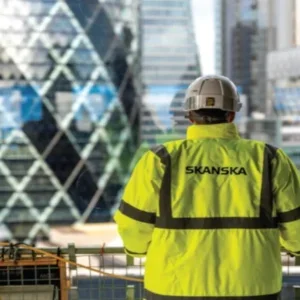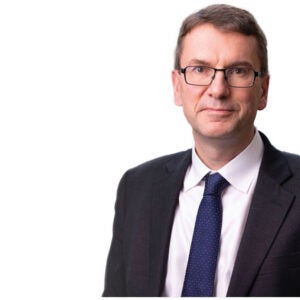
Each year, the World Economic Forum (WEF) releases a risk report, in collaboration with Zurich, mapping the concerns of businesspeople and the anticipated effects that global events will have on industry. As the Covid-19 pandemic has swept across the world, spreading economic uncertainty in its wake, the organisations again teamed up to help officials navigate these testing times.
The study, produced in partnership with Marsh & McLennan, Zurich and the WEF, gathered the views of nearly 350 senior risk professionals who were asked to look at the next 18 months, and rank their biggest concerns in terms of likelihood and impact for the world and for business. These range from the weakening fiscal position of major economies, tighter restrictions on the cross-border movement of goods and people, and the collapse of emerging markets. In examining the links between risks, the report also called on leaders to act now against an avalanche of future systemic shocks such as the climate crisis, geopolitical turbulence, rising inequality, strains on people’s mental health, gaps in technology governance and health systems under continued pressure.
“It became pretty clear to us quite quickly, as part of the platform, that we should put together a report to help people think beyond the decisions they are taking right now or in the next few weeks,” says Peter Giger, head of risk at Zurich and one of the authors of the report. Having collaborated on a specialist study to gauge perceptions of risk from a wide range of business sectors, the biggest concern that Giger has been hearing is the threat of a prolonged global recession.
“That’s hardly surprising, given reports that have been put out discussing a 3% reduction in productivity, and in some countries significantly greater reduction,” he says. “Those economic risks have very wide-ranging environmental, technological implications and connections. Not least of all, an increase in indebtedness in the public and private sectors that will inevitably push some companies into bankruptcy and challenge how social protection systems can support people using private funding and savings in general. That’s a very serious aspect of Covid-19, but it’s obviously not just the economic risks.”
The warning signs were there
While the first major pandemic in 100 years has come as a surprise to many, the WEF and Zurich had listed the significant threat of global disease in successive reports. At the beginning of 2020, it was discussed as a high-risk factor by the WEF’s wide network of business leaders, NGOs and academics.
“Time and again, this has been highlighted,” he says. “However, we have had a complete lack of pandemic preparedness globally. Historically, the frequency of infectious diseases has gone up over recent years. […] That’s why the WEF has worked with bodies including the World Health Organisation, and […] the Bill and Melinda Gates Foundation, to come together on vaccine development.”
As we look to emerge from the crisis, however, Giger believes that we are hindered by a world that’s increasingly divided, with many nations no longer working together to tackle problems. He gives the example of personal protective equipment, with some countries seemingly hoarding it and selling it on for high prices, rather that sharing it.
“It means it’s very difficult to support multilateral organisations and multilateral behaviours to address global risks,” he says. “These risks can’t be easily dealt with by one nation […] Climate change and pandemics aren’t limited to country borders, so it’s really important that politicians work together.”
A green new future
While coronavirus has been pushed to the top of the global agenda, one of the other key issues discussed in the WEF risk report over the past decade has been the looming threat of climate change. While the pandemic has highlighted the vulnerability of people and the planet, the crisis has also helped people collaborate to tackle a shared problem through community action, volunteering and fundraising, and this collective energy is something that he hopes can be transferred to the fight against global warming.
“There’s four types of sustainability that we need to invest in,” he explains. “One of these is physical capital, especially putting money into things like changing energy systems for renewables. I think there’s also the human capital building system and using technology in the digital economy to really improve that. There’s additionally something happening right now around natural capital, ensuring we have strong biosystems, and finally there’s social capital.”
Socially, citizens are putting pressure on their governments to take bold action on climate change. In the UK, 79% of people surveyed by the Climate Assembly stated that they want a Covid-19 recovery package tied to net-zero emissions. This is a view shared within the upper echelons of the WEF, as well. A new book by Klaus Schwab, founder and executive chairman of the WEF, and Thierry Malleret, founder of the Monthly Barometer, considers the far-reaching implications of the pandemic and argues the need for a “great reset” in every domain from policymaking to business. “We are at a crossroads,” the authors of Covid-19: The Great Reset argue. “One path will take us to a better world: more inclusive, more equitable and more respectful of Mother Nature. The other will take us to a world that resembles the one we just left behind – but worse and constantly dogged by nasty surprises. We must, therefore, get it right.”
The new risk report by the WEF and Zurich, titled ‘Transformational Investment: Converting Global Systemic Risks into Sustainable Returns’, provides new insights to ensure that the long-term impact of non-traditional risks and opportunities can be better understood. “As we reboot our economies, changes in working practices and in attitudes towards travelling, commuting and consumption all point to new ways to achieve a lower-carbon and more sustainable future,” said Giger, in a recent statement to the WEF.
“The pandemic will have long-lasting effects, as high unemployment affects consumer confidence, inequality and well-being, and challenges the efficacy of social protection systems. With significant pressures on employment and education – over 1.6 billion students have missed out on schooling during the pandemic – we are facing the risk of another lost generation. Decisions taken now will determine how these risks or opportunities play out.”
In terms of opportunity arising from chaos, Giger has been encouraged by some countries’ green recovery efforts. In France, for example, International Energy Agency presented a sustainable plan focusing on a series of actions over the next three years to revitalise economies and boost employment, while making energy systems cleaner and more resilient. With governments keen to invest, the biofuel sector is poised to grow by $19.44bn during 2020–24, with a CAGR of more than 3% over the period, according to Technavio.
“People will still have challenges in this long, slow, process that we have to deal with,” Giger concludes. “But the good thing is that people are getting a lot of news, or a lot of comments about business and political leaders working on a green recovery from Covid-19. So, there are glimmers of hope, but the state of geopolitics globally is such that we can’t be sure that a green recovery will happen. On the other hand, uncertainty is a feature of all global risk right now.”
79%
People in the UK surveyed stated that they want a Covid-19 recovery package tied to net-zero emissions.
Climate Assembly
$19.44bn
The expected growth of the biofuel sector during 2020- 24, progressing at a CAGR of over 3% during the forecast period.
Technavio
1.6 billion
Students have missed out on schooling during the pandemic.
Unicef






